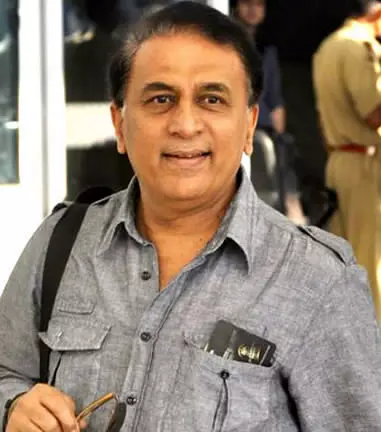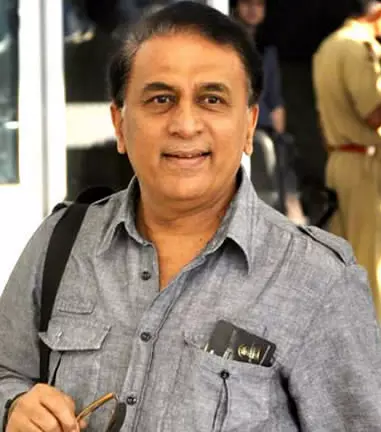
Sunil Gavaskar, a retired Indian cricketer best known for the various records he set during his playing career, is regarded as one of the best opening batsmen in the game’s history. Gavaskar made a huge splash in the history of international cricket as he scored 774 runs in his first test match against the West Indies. The young lad was immediately hailed as a national hero, but he didn’t realise the extent of the hopes that Indian cricket fans had for his future career.He did not let his fans down. He rewrote cricket’s history by setting a slew of milestones, many of which took decades to smash and many of which are yet to be surpassed. He was affectionately known as “The Little Master,” considering his diminutive size of 5′ 5″. Gavaskar started playing cricket at a young age and was the star batsman at his high school, consistently scoring hundreds of runs! His high school career gave way to first-class cricket, which led to him being chosen for the national team. Following a brilliant career as a cricketer, he became a commentator.
Childhood and Puberty
Sunil was born in a middle-class family to Manohar Gavaskar and Meenal. He loved cricket from a young age and it was no surprise. His father had been a good club player and his maternal uncle, Madhav Mantri had been a former Indian Test wicketkeeper.
He went to St. Xavier’s school as it was well known for its cricketing traditions. He played a lot of cricket during his school years and was named India’s Best Schoolboy Cricketer of the year in 1966. He made his first class debut in 1966-67 playing for Vazir Sultan Colts XI.
Career
After a promising first-class career, he was picked for the Indian team that toured the West Indies in 1970-71. He had to miss the first match of the five-match series due to injury. But he made up for it by scoring 774 runs in the next four matches, guiding India to victory in the series.
His sensational debut won him the status of national hero among Indian cricket fans. The strain mounted on his young shoulders, and he suffered during the subsequent England tour.
In 1975-76, he scored back-to-back centuries in the West Indies, recording 156 and 102 runs in the second and third tests, respectively. His century in the third test was instrumental in India’s victories.
In 1977-78, he visited Australia and had a wonderful time! In the first three tests, he was in top form, recording three straight Test centuries. His efforts, however, were in vain, as India lost the series.
When India toured Pakistan in 1978-79, the pressure was heavy because the two countries have already been arch cricket rivals. Gavaskar did admirably in the first two tests, but he was unable to score centuries. He did, however, score two centuries in the third test, one in each innings.
Gavaskar captained India on several occasions during the 1970s and 1980s. However, as a captain, he did not do well. As a result, he was replaced by Kapil Dev, a top pace bowler. After a few years, he was promoted to captain again, and a few years later, he was replaced by Kapil Dev.
The decade of the 1980s started with India winning a tough series against England, 1-0. In this series, he batted 500 times for an average of 62.5.
In a one-off test against Sri Lanka in Madras during the 1982-83 season, he scored 155 runs. This was the first match between the two countries since Sri Lanka was given test status.
He was a member of the 1983 Cricket World Cup-winning side, which triumphed in England.
He scored an undefeated century in the first test and two half centuries in the other matches in the 1983-84 home series against Pakistan. Both three games that were played ended in a tie.
During the 1985-86 tour of Australia, Gavaskar was in excellent form, scoring an undefeated 166 in the first test and 172 in the third, for a total of 353 runs at an average of 117.
He retired after the 1987 Cricket World Cup, which was held in India, after his last test series against Pakistan.
Since retired, he became a columnist and is known for his candid viewpoints. He’s also the author of four cricket novels, including an autobiography called “Sunny Days.”
Achievements & Awards
He was the first player in Test cricket history to score 10,000 runs.
He smashed Sir Don Bradman’s record of 29 Test centuries and held the world records for the most Test centuries and Test runs at one point. His Test record is 122 matches, 10122 runs scored, 51.12 batting average, 34/45 100s/50s. His ODI record is 108 matches, 3092 runs scored, 35.13 batting average, 1/27 100s/50s.
In 1980, the Indian government awarded him the Padma Bhushan in appreciation of his contributions to cricket.
In 2012, he was honoured with the Col CK Nayudu Lifetime Achievement Award.
